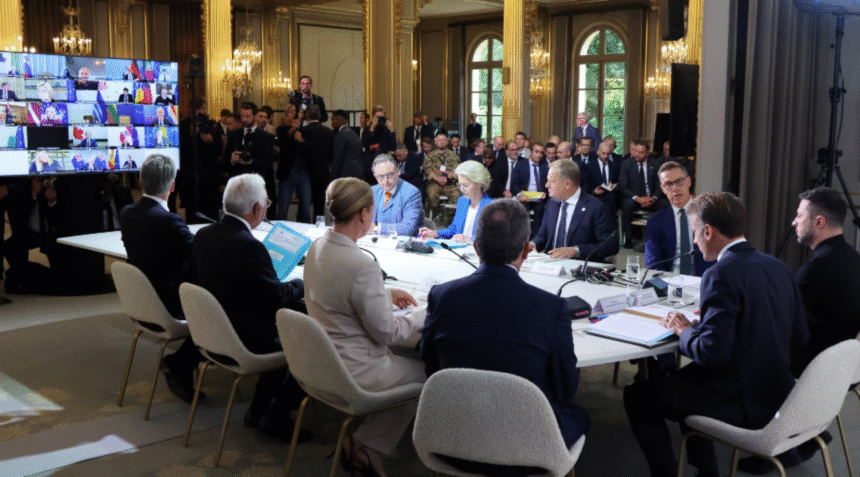The Coalition of Will, composed of almost all European states supporting Ukraine, has convened in Paris, reports The Guardian.
This ad hoc alliance has pledged to present a practical security plan for Ukraine after the war. Although multiple meetings have been held in recent months, tangible results have been limited. This gathering marks a full participation, with additional leaders joining online.
Opening the meeting, French President Emmanuel Macron said leaders are convening to “finalize strong security guarantees for Ukraine and all the work carried out in recent weeks.”
UK Prime Minister Keir Starmer warned the coalition that Putin “cannot be trusted,” as Russia continues to delay peace talks while conducting attacks on Ukraine.
Irish Prime Minister Micheál Martin emphasized that discussions focused on achieving progress on security guarantees necessary to support any ceasefire or peace agreement. These guarantees could take multiple forms—from a “security force” that some countries are willing to join, to further training for Ukraine’s Defense Forces. He also noted that peacekeepers might play a role in ensuring compliance with any ceasefire or peace deal, with Ireland “open to participating in such a mission under an appropriate mandate.”
Croatian Prime Minister Andrej Plenković stressed the need to continue providing comprehensive support to Ukraine and backing Ukraine’s plans to join the EU.
Estonian Minister Kristen Michal highlighted that while “Putin hopes his games will exhaust the democratic world, our unity and determination have proven otherwise.” He added: “Security guarantees must be defined by those who request and offer them. Russia has no right over Ukraine’s future—or Europe’s, or NATO’s.”
Spanish Prime Minister Pedro Sánchez, delayed in Madrid due to a technical issue with his plane, called for transatlantic unity, saying it is “more necessary than ever” and urging partners not to compromise against Russian aggression.
Lithuanian President Gitanas Nausėda emphasized that guarantees should provide a real deterrent, not just another memorandum like the Budapest Memorandum.
Overall, leaders reiterated support for Ukraine, the importance of credible security guarantees, and Western unity, rejecting any Russian influence over Ukraine’s future.







